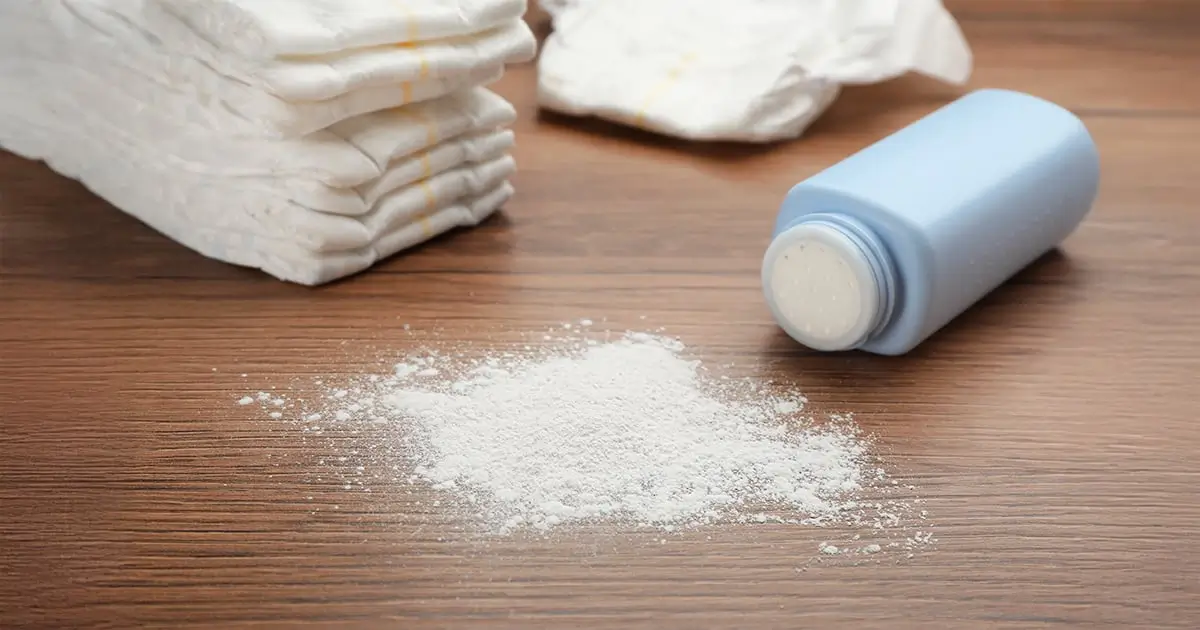Talc, a commonly used ingredient in various everyday products, has been the subject of recent lawsuits due to its potential contamination with asbestos. Asbestos is a harmful material known to cause lung tissue scarring and cancer when its airborne fibers are inhaled.
Talc finds its way into numerous items, ranging from makeup to baby powder, and is even used as a food additive. However, it can sometimes be contaminated with asbestos. Despite concerns about asbestos contamination, the US Food and Drug Administration (FDA) has allowed the cosmetic talc industry to self-monitor the use of talc in cosmetics.
Client Testimonials
Talc and Asbestos: The Testing Challenge
The cosmetic talc industry claims to test its talc for asbestos and use only asbestos-free talc. However, experts argue that the outdated testing methods employed by industry scientists cannot effectively detect the presence of asbestos in talc, thereby leaving potentially dangerous levels of asbestos undetected. FDA officials first discussed testing talc for asbestos in 1976 but opted to let the industry handle the testing. Similar proposals for the FDA to conduct the tests were raised in 1994 and 2001, but no changes were made.
Mesothelioma Linked to Talcum Powder
Exposure to asbestos can lead to the development of a highly aggressive form of cancer known as mesothelioma. If you suspect that you or someone you know has been exposed to asbestos through the use of talcum powder, it’s crucial to seek information about your legal rights. Cooney & Conway specializes in cases related to mesothelioma and can provide valuable guidance in such situations.
Talcum Powder and Ovarian Cancer
The potential link between talcum powder and ovarian cancer has been under investigation for several decades. There is evidence to suggest that Johnson & Johnson, a renowned talc product manufacturer, was aware of the ovarian cancer risk associated with talcum powder as early as 1982 but failed to warn the public.
Both the National Cancer Institute and the American Cancer Society consider the use of talcum powder near the genitals as a “risk factor” for ovarian cancer. The International Journal of Gynecological Cancer states that women who apply talcum powder to their genital area face a 30%-60% increased risk of developing cancer. Despite this, Johnson & Johnson and other talc powder manufacturers have neglected to include warnings on their products.
Case Results
-
$875 million
AsbestosSettlement against Pfizer, Inc. after 5 years of litigation.
-
$200 million
AsbestosSettlement in a consolidated asbestos case. At the time, this settlement was the largest in the history of Illinois.
-
$35.1 million
AsbestosVerdict for a refinery worker exposed to asbestos at Shell Oil.
Understanding Baby Powder Contamination
Given the well-known dangers of asbestos, it is concerning that a carcinogen could potentially be present in a product used on infants. The answer lies in the talcum powder itself. Talc-based baby powder may contain asbestos since talc mines can be contaminated with asbestos.
In May 2020, Johnson & Johnson ceased the sale of their baby powder in the United States following extensive investigations that revealed asbestos incidents in their product. The company currently faces numerous lawsuits related to this issue.
Call For a Free Consultation
Brands with Asbestos Contamination
Several manufacturers and brands have had their vintage products recently test positive for asbestos contamination. These include:
- Avon Unforgettable Perfumed Talc
- Avon Timeless Powder
- Cashmere Bouquet
- Chanel Cocco Mademoiselle
- Coty Air Spun
- Coty Emeraude Dusting Powder
- Desert Flower Powder
- Estee Lauder Youth Dew Dusting Powder
- Friendship Garden Dusting Powder
- Johnson & Johnson Baby Powder
- Johnson & Johnson Shower to Shower Body Powder
- Shulton Old Spice
A New York Times article from 1976 identified ten contaminated products, and since then, numerous other products have been found to contain asbestos. Johnson & Johnson has been one of the major companies facing litigation, but other manufacturers are also involved.
Meet Our Attorneys
-
 Read Bio: John D. Cooney
Read Bio: John D. CooneyJohn D. Cooney
Partner | 1954 – 2023
Johnson & Johnson Lawsuits
Johnson & Johnson, a prominent player in asbestos litigation, has undergone several investigations in recent years. The company has faced accusations of concealing asbestos in its baby powder. In response to growing concerns, Johnson & Johnson recalled some of its products in 2019, and in May 2020, they announced the discontinuation of talc-containing baby powder.
A 1992 internal memo from Johnson & Johnson acknowledged the negative publicity surrounding talc, including inhalation risks, negative doctor endorsements, and potential cancer links. The memo even recommended increasing marketing efforts towards Black and Hispanic women. The company was later ordered to pay over $2 billion in June 2020 to a group of women, some of whom had already passed away, who developed ovarian cancer. The National Women’s Health Network’s M. Isabelle Chaudry has highlighted the harm caused by Johnson & Johnson’s practices, particularly within communities of color.
Investigative articles, such as one by Reuters, have exposed how Johnson & Johnson covered up asbestos in their products and the resulting health risks. These articles shed light on recent litigation that has brought the truth to public attention.
During an oversight hearing on talc and asbestos exposure, Congressman Raja Krishnamoorthi letterread a letter (p. 23) written by a Cooney & Conway client. The letter, penned by Felipe Aviles, detailed his daughter Jeanette’s diagnosis of peritoneal mesothelioma and stated that she “died as a result of using talcum powder, a product that contained asbestos, a known carcinogen.” Congressman Krishnamoorthi further emphasized the impact on women’s lives in an article titled “Talcum Powder Sales Shouldn’t Come at the Cost of Women’s Lives.”
Apart from Johnson & Johnson, other companies are currently facing talc-related litigation, particularly regarding talc body powders. Colgate-Palmolive, for instance, has encountered numerous lawsuits related to its talcum powder, which was widely used until the 1990s. The company has already faced substantial financial losses and has additional cases pending.
Free Consultation
"*" indicates required fields
Revlon’s Liability and Discontinued Products
Revlon, in early 2020, became the latest corporation to be sued in connection with talc and asbestos. A lawsuit alleged that a body powder previously sold by Revlon, but now discontinued, caused the plaintiff’s mesothelioma. In recent years, makeup companies, including Revlon, have silently discontinued products such as face powder and body powder.
Beyond Johnson & Johnson
When the news broke that Johnson & Johnson’s baby powder contained potentially asbestos-contaminated talcum, it shocked many consumers. The question arises as to how such a potentially harmful product was used on babies for so long.
Talcum, a naturally occurring mineral, is mined and processed for use in various products. Asbestos, another naturally occurring mineral, can be found in the same areas as talcum deposits. Consequently, when talcum is mined, it can become contaminated with asbestos. It is important to note that Johnson & Johnson is not the only manufacturer that has used talcum powder containing asbestos in their products.
Revlon’s liability exposure is also noteworthy. Talcum powder is commonly used in many products to absorb moisture and provide lubrication. Besides baby powder, talcum is an ingredient in numerous cosmetic products, including face powders, makeup, eye shadow, creams, and deodorants.
One of Revlon’s products, Jean Nate Silkening Body Powder®, was cited in a lawsuit alleging asbestos-contaminated talcum powder caused mesothelioma. Revlon has discontinued this product, which was introduced in 1935 and used by millions of women over the years.
If talcum powder is contaminated with asbestos, it significantly increases the risk of exposure to this carcinogenic substance. Therefore, it is crucial for manufacturers to exercise strict quality control measures to ensure their talcum-based products are asbestos-free.
Interested In Connecting?
Legal Actions and Regulatory Oversight
The discovery of asbestos in talcum powder has led to a wave of lawsuits against various companies. These lawsuits typically involve individuals who have been diagnosed with mesothelioma or ovarian cancer and claim that their exposure to asbestos-contaminated talc products, including baby powder, led to their illnesses.
Government agencies and regulatory bodies are also taking action. The FDA has been urged to implement stricter regulations and testing protocols for talcum powder products to ensure their safety. Consumer advocacy groups are pushing for stronger oversight and labeling requirements to protect consumers from potential harm.
In conclusion, the presence of asbestos in talcum powder has been a cause for concern, leading to litigation, product recalls, and increased scrutiny of cosmetic talc products. It is essential for consumers to stay informed about the potential risks associated with talc-containing products and consult with medical professionals regarding their use.



